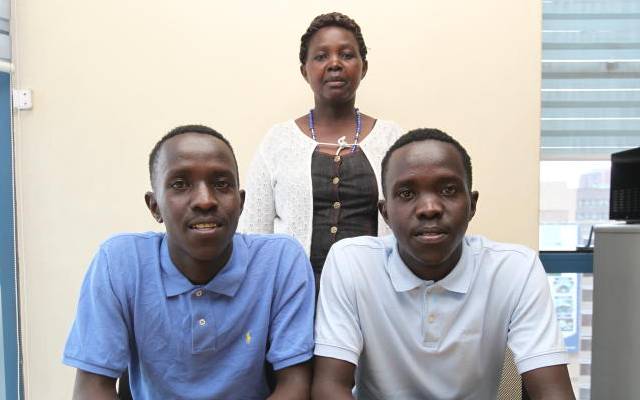×
The Standard e-Paper
Smart Minds Choose Us

Twins Joash Mauti (left) and Duncan Omae accompanied by their mother Veronica Nyamoita during an interview in Nairobi. [Jonah Onyango, Standard]
It is hard to tell apart Duncan Omae and Joash Mauti. They have the same shy smile, and when they speak, they finish each other’s sentences.